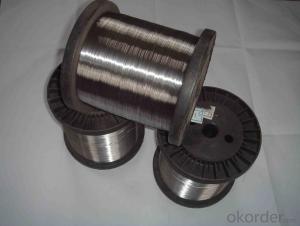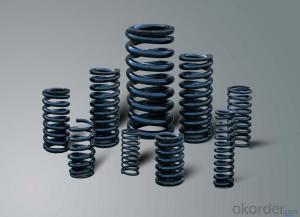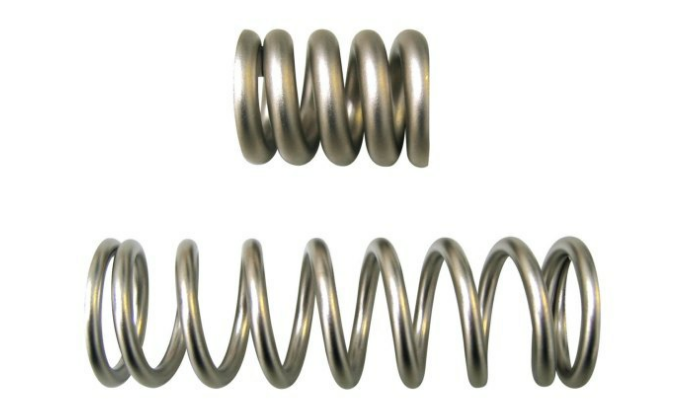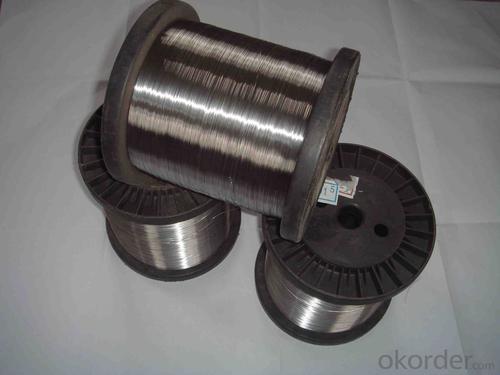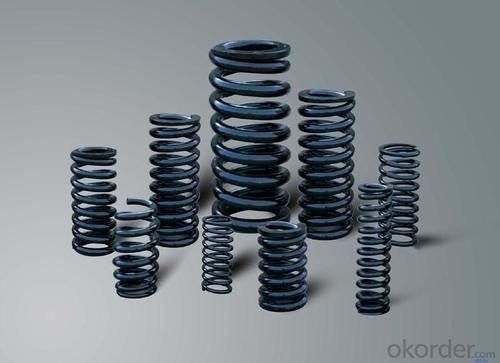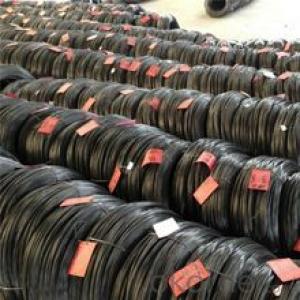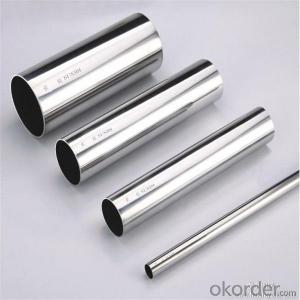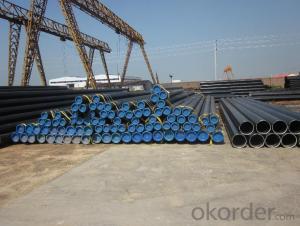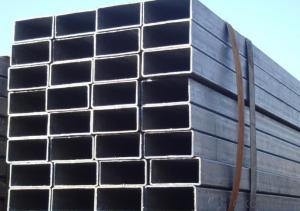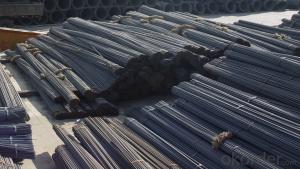Spring Wire For Industria Hot Sale and High Quality
- Loading Port:
- Shanghai
- Payment Terms:
- TT OR LC
- Min Order Qty:
- 5000 kg
- Supply Capability:
- 10000 kg/month
OKorder Service Pledge
OKorder Financial Service
You Might Also Like
1.Packing And Delivery
Package: Seaworthy package
MOQ: 0.5 tons
Delivery: 15-20 days
Monthly Output: 100 tons
Payment : 30%T/T in advanced+70% balanced;irrevocable L/C at sight
Remarks: All-risk insurance and accept the third party test
Port : Shanghai
AISI 316 high tensile strength stainless steel spring wire
| Detail as follows: | |
| Standard | AISI,ASTM,GB,SUS etc |
| Grade | 201,202,204,301,303,304,304L,310,316,316L etc |
| Diameter | 0.7mm-14.0mm |
| Surface | Bright or matt |
| Condition | hard |
| Tolerance | +/-0.03mm |
| Length | According to customers’ requirement |
| Packing | Packed by weaved bag or according to customer's requirements |
| Technology | Cold drawn |
| Application | Spring |
| Productivity | 300 tons/month |
| MOQ | 100KG |
| Note | We can produce other standard as the customers' requirement |
1. Competitive price and quality from our own factory
2. Approved by ISO9001, CE, SGS every year
3. Best service with 24 hour`s reply
4. Flexible payment with T/T,L/C , paypal, kunlun bank, western union, etc.
5. Smooth production ability(50000tons/month)
6. Quick delivery and standard exporting package
7. OEM/ODM
- Q: Can steel pipes be used for airport construction?
- Yes, steel pipes can be used for airport construction. Steel pipes are commonly used in various construction projects due to their durability, strength, and resistance to corrosion. They are capable of withstanding heavy loads and are often used for underground drainage systems, water supply networks, and structural support in airport construction.
- Q: What is the difference between steel pipes and copper-nickel pipes?
- The main difference between steel pipes and copper-nickel pipes lies in their composition and characteristics. Steel pipes are primarily made of iron and carbon, whereas copper-nickel pipes are made of a combination of copper and nickel with trace amounts of other elements. Steel pipes are known for their strength and durability, making them suitable for a wide range of applications, particularly in industries where high pressure and temperature conditions are present. Steel pipes are also relatively cost-effective and have good corrosion resistance, especially when coated or galvanized. On the other hand, copper-nickel pipes are highly resistant to corrosion and have excellent heat transfer properties. They are commonly used in marine environments due to their resistance to saltwater corrosion. Copper-nickel pipes also exhibit antimicrobial properties, making them suitable for applications in healthcare and food processing industries. However, copper-nickel pipes are generally more expensive than steel pipes. In summary, steel pipes are valued for their strength and affordability, while copper-nickel pipes offer superior corrosion resistance and heat transfer properties, but at a higher cost. The choice between the two depends on the specific requirements of the application.
- Q: What are the quality control measures for steel pipe production?
- Quality control measures for steel pipe production typically involve various inspections and tests at different stages of the manufacturing process. Some of the key measures include: 1. Raw material inspection: Ensuring that the steel used for pipe production meets specified standards for chemical composition, mechanical properties, and dimensional accuracy. 2. Dimensional inspection: Checking the outer diameter, wall thickness, and length of the pipes to ensure they meet the required specifications. 3. Welding inspection: Verifying the quality of welds by conducting non-destructive tests, such as ultrasonic or radiographic testing, to detect any defects or discontinuities. 4. Surface inspection: Examining the pipe surface for any defects, such as scratches, pits, or corrosion, which can affect the overall quality and performance. 5. Mechanical testing: Performing tests like tensile strength, yield strength, and impact resistance to assess the mechanical properties of the pipes and ensure they meet the desired standards. 6. Pressure testing: Subjecting the pipes to hydrostatic or pneumatic pressure tests to verify their ability to withstand the intended operational pressures without leakage or failure. 7. Coating inspection: Checking the quality and uniformity of any protective coatings or linings applied to the pipes to prevent corrosion or other forms of deterioration. 8. Documentation and traceability: Maintaining records of all inspections, tests, and certifications to provide traceability and ensure compliance with relevant industry standards and customer requirements. These quality control measures help to ensure that steel pipes are manufactured to the highest standards, possess the required mechanical and dimensional properties, and are fit for their intended application.
- Q: What are the different methods of pipe lining for steel pipes?
- There are several different methods of pipe lining for steel pipes, each with its own unique features and benefits. These methods include: 1. Spray lining: In this method, a specially formulated coating is sprayed onto the interior surface of the steel pipe. The coating adheres to the pipe and forms a protective barrier against corrosion and chemical damage. Spray lining is relatively quick and cost-effective, making it a popular choice for smaller diameter pipes. 2. Cured-in-place pipe lining (CIPP): CIPP involves inserting a flexible liner into the steel pipe and then curing it in place using steam or hot water. This method creates a seamless and durable lining that restores the structural integrity of the pipe. CIPP is commonly used for larger diameter pipes and can be installed without the need for excavation. 3. Slip lining: Slip lining involves inserting a slightly smaller diameter pipe into the existing steel pipe. The annular space between the two pipes is then grouted or filled with a cementitious material. This method is effective in rehabilitating pipes with minor defects or damages and can significantly increase the pipe's lifespan. 4. Fold-and-form lining: In this method, a flexible liner is inserted into the steel pipe and then expanded to the pipe's diameter using a mechanical or hydraulic process. The liner is then folded and formed to fit the contours of the pipe before being cured in place. Fold-and-form lining is ideal for pipes with irregular shapes or bends. 5. Coating lining: Coating lining involves applying a protective coating to the interior surface of the steel pipe. The coating can be sprayed, brushed, or rolled onto the pipe's surface and provides a barrier against corrosion and chemical damage. This method is commonly used for large diameter pipes or pipes in harsh environments. Each of these methods has its own advantages and disadvantages, and the choice of the lining method will depend on factors such as pipe diameter, condition, budget, and project requirements. It is important to consult with a professional pipe lining contractor to determine the most suitable method for a specific steel pipe rehabilitation project.
- Q: What is the average lifespan of a steel pipe?
- The average lifespan of a steel pipe can vary depending on various factors such as the quality of the steel, the environment it is exposed to, and the level of maintenance. However, with proper installation and maintenance, a steel pipe can typically last anywhere from 20 to 100 years.
- Q: Are steel pipes resistant to corrosion?
- Yes, steel pipes are generally resistant to corrosion due to their composition, which includes a protective layer of zinc or other anti-corrosion coatings. However, factors such as exposure to harsh environments or chemicals can affect the level of corrosion resistance.
- Q: Will the steel tube dance?
- In a single pole dance performance, the dancer moves more naturally, herself, moves and techniques, and does what she wants to do, while the style of dance is determined by herself, no one intervenes, and quite free.
- Q: How do you calculate the stress in a steel pipe?
- To calculate the stress in a steel pipe, you need to determine the applied force or load acting on the pipe and divide it by the cross-sectional area of the pipe. This will give you the stress value, which is typically measured in units of force per unit area (such as pounds per square inch or pascals).
- Q: What are the different types of joints used to connect steel pipes?
- There are several types of joints commonly used to connect steel pipes, including threaded joints, welded joints, flanged joints, and grooved joints.
- Q: How are steel pipes used in the construction of skyscrapers?
- Steel pipes are commonly used in the construction of skyscrapers for their strength, durability, and versatility. These pipes are typically used as structural elements, forming the framework of the building, providing support and stability. They are used in the construction of columns, beams, and braces, enabling the building to withstand heavy loads and high winds. Additionally, steel pipes are used for plumbing and mechanical systems, carrying water, gas, and other utilities throughout the building. Their use in skyscrapers ensures the overall strength and integrity of the structure.
Send your message to us
Spring Wire For Industria Hot Sale and High Quality
- Loading Port:
- Shanghai
- Payment Terms:
- TT OR LC
- Min Order Qty:
- 5000 kg
- Supply Capability:
- 10000 kg/month
OKorder Service Pledge
OKorder Financial Service
Similar products
Hot products
Hot Searches
Related keywords

